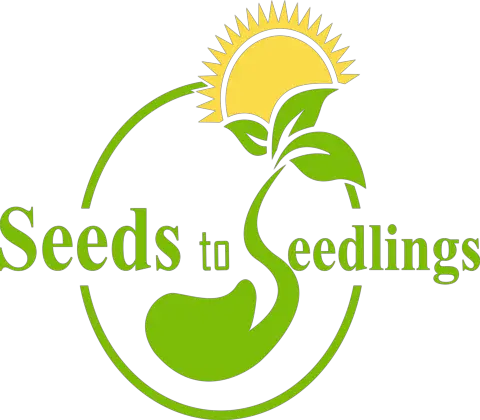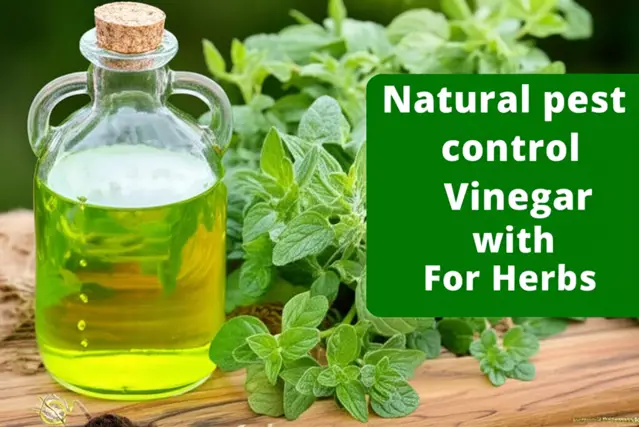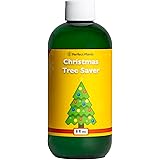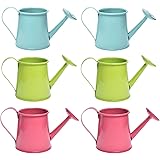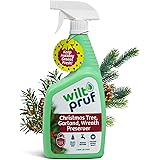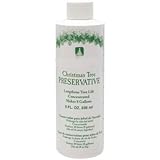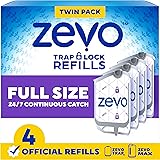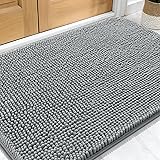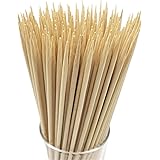Are pests turning your flourishing herb garden into a battlefield? Before you reach for harsh chemicals, consider a natural and effective solution: vinegar.
This common household ingredient can be a powerful ally in the fight against aphids, spider mites, and other common garden pests, helping you keep your herbs healthy and productive without harming the environment.
Why Choose Natural Pest Control for Herbs?
Herbs are often grown for culinary and medicinal purposes, making it crucial to avoid synthetic pesticides that can leave harmful residues. Natural pest control methods, like using vinegar, offer several advantages:
- Safety: Natural solutions are generally safer for you, your family, and your pets.
- Environmentally Friendly: They minimize the impact on beneficial insects, pollinators, and the overall ecosystem.
- Cost-Effective: Vinegar is readily available and inexpensive compared to commercial pesticides.
- Prevents Resistance: Overuse of synthetic pesticides can lead to pests developing resistance, making them harder to control in the long run. Natural methods help avoid this.
Understanding How Vinegar Works as a Pest Control
Vinegar’s effectiveness as a pest control agent lies in its acetic acid content. This acid disrupts the nervous system of many soft-bodied insects, leading to their demise. It also acts as a deterrent, discouraging pests from feeding on your herbs. It is a simple yet effective method, especially when combined with other organic gardening practices.
Types of Vinegar for Pest Control
While several types of vinegar exist, not all are created equal for pest control purposes:
- White Vinegar: This is the most commonly used and readily available type of vinegar. It typically contains 5% acetic acid, which is sufficient for most pest control applications.
- Apple Cider Vinegar: While also effective, apple cider vinegar is generally more expensive than white vinegar. Some gardeners prefer it for its slightly milder odor.
- Cleaning Vinegar: This type contains a higher concentration of acetic acid (typically 6% or higher) and should be diluted more carefully to avoid damaging plants.
Important Note: Avoid using industrial-strength vinegar, as its high acidity can severely damage or kill your plants.
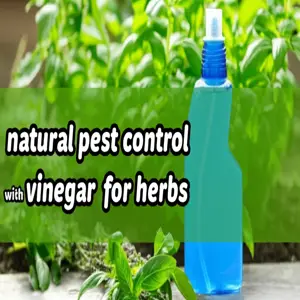
Common Herb Garden Pests and How Vinegar Can Help
Vinegar can be effective against a range of common herb garden pests:
- Aphids: These tiny, sap-sucking insects can quickly infest herbs, causing stunted growth and distorted leaves.
- Spider Mites: These pests create fine webs on plants and suck plant juices, leading to yellowing and eventual leaf drop.
- Whiteflies: Small, white, flying insects that feed on plant sap, weakening the plant.
- Ants: While ants don’t directly harm plants, they often protect aphids and other pests, making pest control more difficult.
- Fruit Flies: Vinegar can be used in traps to attract and eliminate fruit flies that might be attracted to ripe or decaying herbs or fruits in your garden.
Vinegar Pest Control Recipes for Your Herb Garden
Here are a few simple and effective vinegar-based pest control recipes you can use in your herb garden:
Basic Vinegar Spray
This recipe is suitable for most common pests and herbs.
Ingredients:
- 1 cup white vinegar
- 3 cups water
- 1 teaspoon liquid dish soap (optional, helps the solution stick to leaves)
Instructions:
- Combine the vinegar, water, and dish soap (if using) in a spray bottle.
- Shake well to mix.
- Test the spray on a small area of the plant before applying it to the entire plant. Wait 24 hours to check for any adverse reactions.
- Spray the affected areas of the herb thoroughly, making sure to cover both the tops and undersides of the leaves where pests often hide.
- Repeat the application every 2-3 days or as needed until the pests are gone.
Stronger Vinegar Spray for Stubborn Pests
For more persistent infestations, you can increase the concentration of vinegar.
Ingredients:
- 1 cup white vinegar
- 2 cups water
- 1 teaspoon liquid dish soap (optional)
Instructions:
- Follow the same instructions as the basic vinegar spray.
- Be extra cautious when using this stronger solution, as it may be more likely to cause leaf burn.
- Monitor your plants closely for any signs of damage.
Vinegar Ant Bait
This simple bait can help control ants in your herb garden.
Ingredients:
- 1/2 cup white vinegar
- 1/2 cup sugar
Instructions:
- Mix the vinegar and sugar in a small container.
- Soak cotton balls in the mixture and place them near ant trails or nests.
- The ants will be attracted to the sugar and carry the vinegar back to their colony, eventually eliminating them.
Vinegar Fruit Fly Trap
Attract and trap those pesky fruit flies.
Ingredients:
- A small jar or cup
- Apple cider vinegar
- Dish soap (a drop)
Instructions:
- Pour apple cider vinegar into the jar, filling it about halfway.
- Add a drop of dish soap. This breaks the surface tension of the vinegar.
- Place the jar near your herb garden. Fruit flies will be attracted to the vinegar, fall in, and be unable to escape.
- Replace the vinegar solution every few days.
Best Practices for Using Vinegar in Your Herb Garden
To ensure the safety and effectiveness of vinegar as a pest control method, follow these guidelines:
- Dilution is Key: Always dilute vinegar with water to avoid damaging your plants. Never use undiluted vinegar directly on foliage.
- Test Before Applying: Before spraying the entire plant, test the solution on a small, inconspicuous area. Wait 24 hours to check for any adverse reactions, such as leaf burn or discoloration.
- Apply in the Morning or Evening: Avoid spraying vinegar solutions during the hottest part of the day, as this can increase the risk of leaf burn. The morning or evening when the sun isn’t as strong are ideal.
- Spray Thoroughly: Ensure that you cover all parts of the plant, including the undersides of the leaves, where pests often hide.
- Repeat as Needed: Vinegar is not a systemic pesticide, meaning it only works on contact. You’ll need to reapply the solution every few days or as needed to keep pests under control.
- Avoid Overuse: Excessive use of vinegar can alter the soil pH and harm beneficial microorganisms. Use it sparingly and only when necessary.
- Consider the Herb: Some herbs are more sensitive to vinegar than others. Delicate herbs like cilantro and parsley may require a more diluted solution.
- Combine with Other Methods: Vinegar is most effective when used in conjunction with other natural pest control methods, such as handpicking pests, using insecticidal soap, and encouraging beneficial insects.
Which Herbs Benefit Most from Vinegar Pest Control?
Many common herbs benefit from vinegar pest control, including:
- Basil: Aphids are a common problem for basil plants. Keep an eye out for white spots on basil leaves and address them promptly.
- Mint: Mint can be susceptible to spider mites and aphids. If you find your mint plant is wilting unexpectedly, check for pests.
- Rosemary: Rosemary is generally quite hardy, but it can still be affected by pests in the right conditions. Remember why you should keep rosemary by your garden gate!
- Thyme: Thyme is another resilient herb that can still benefit from occasional pest control measures.
- Oregano: Keep a watchful eye out for pests on your oregano plants.
- Dill: Vinegar can help protect your delicate dill. See how to grow dill in a chipped bowl for more tips.
Herbs That Might Be Sensitive to Vinegar
While vinegar is generally safe for most herbs when diluted properly, some herbs may be more sensitive than others. It’s always best to test a small area first. Consider these herbs:
- Cilantro: Cilantro is a delicate herb that can be easily damaged by strong vinegar solutions. If you observe that your cilantro is turning yellow even with diluted vinegar, reduce the concentration. Also, remember, you can plant lemon balm and cilantro together for mutual benefit.
- Parsley: Similar to cilantro, parsley is also sensitive to strong acidity.
Always start with a highly diluted solution and monitor your plants carefully for any signs of stress.
Combining Vinegar with Other Natural Pest Control Methods
For optimal pest control, consider using vinegar in combination with other natural methods:
- Handpicking Pests: Regularly inspect your herbs and remove any visible pests by hand.
- Insecticidal Soap: Insecticidal soap is another effective natural pesticide that can be used to control aphids, spider mites, and other soft-bodied insects.
- Neem Oil: Neem oil is a broad-spectrum insecticide that can be used to control a wide range of pests.
- Beneficial Insects: Attract beneficial insects to your garden, such as ladybugs, lacewings, and parasitic wasps, which prey on common herb garden pests. You can attract hummingbirds and they will help with insect control: best plants for attracting hummingbirds
- Companion Planting: Planting certain herbs and flowers together can help deter pests. For example, marigolds are known to repel nematodes and other soil pests. Did you know that marigolds help tomato plants?
- Diatomaceous Earth: This natural powder is made from fossilized algae and can be used to control crawling insects.
When Vinegar Might Not Be Enough
While vinegar is a valuable tool for natural pest control, it may not be sufficient for severe infestations or certain types of pests. In these cases, you may need to consider other options, such as stronger natural pesticides or, as a last resort, synthetic pesticides. If you’re growing tomatoes, for example, you might need a stronger solution for certain pests: natural pesticide tomato plants.
However, always prioritize natural and organic methods whenever possible to protect your health and the environment.
Preventative Measures to Minimize Pest Problems
The best way to control pests is to prevent them from becoming a problem in the first place. Here are some preventative measures you can take to minimize pest problems in your herb garden:
- Healthy Plants: Healthy plants are more resistant to pests and diseases. Ensure that your herbs receive adequate sunlight, water, and nutrients.
- Good Soil: Use well-draining soil that is rich in organic matter. To get the best result, make sure to prepare the soil of my garden well.
- Proper Spacing: Give your herbs enough space to allow for good air circulation. This helps prevent fungal diseases and reduces the risk of pest infestations.
- Regular Inspection: Regularly inspect your herbs for signs of pests or diseases. The earlier you catch a problem, the easier it will be to control.
- Remove Weeds: Weeds can harbor pests and diseases, so keep your herb garden weed-free. Consider natural ways to get rid of dandelions naturally and permanently.
- Water Wisely: Avoid overwatering, as this can create a humid environment that is conducive to fungal diseases and pest infestations.
- Rotate Crops: If possible, rotate your herb crops each year to prevent soilborne pests and diseases from building up.
By implementing these preventative measures, you can create a healthy and thriving herb garden that is less susceptible to pest problems.
Table: Vinegar Dilution Guide for Common Herbs
| Herb | Vinegar Concentration (Vinegar:Water) | Notes |
|---|---|---|
| Basil | 1:3 | Test on a small area first. |
| Mint | 1:3 | Monitor for leaf burn. |
| Rosemary | 1:2 | Generally tolerant, but still test. |
| Thyme | 1:2 | Fairly resilient. |
| Oregano | 1:2 | Adjust dilution if needed. |
| Cilantro | 1:4 | Very sensitive; dilute more if necessary. |
| Parsley | 1:4 | Similar to cilantro; use caution. |
| Dill | 1:3 | Delicate leaves, dilute if needed. |
Safety Precautions When Using Vinegar
While vinegar is a natural and relatively safe pest control option, it’s still important to take certain safety precautions:
- Wear Gloves: Vinegar can irritate the skin, so it’s best to wear gloves when handling it.
- Avoid Eye Contact: Vinegar can cause eye irritation. If you get vinegar in your eyes, rinse them thoroughly with water.
- Keep Out of Reach of Children and Pets: Store vinegar in a safe place where children and pets cannot access it.
- Do Not Mix with Bleach: Mixing vinegar with bleach can create toxic fumes.
- Use in a Well-Ventilated Area: When spraying vinegar, use it in a well-ventilated area to avoid inhaling the fumes.
By following these safety precautions, you can minimize the risks associated with using vinegar for pest control.
Beyond Pest Control: Other Uses for Vinegar in the Garden
Vinegar has several other beneficial uses in the garden beyond pest control:
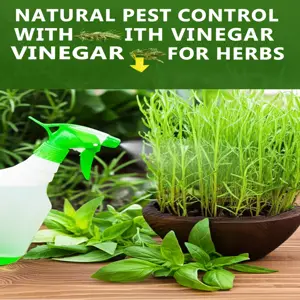
- Weed Killer: Vinegar can be used to kill weeds, especially in cracks and crevices. However, it will kill any plant it comes into contact with, so use it carefully. Be very careful when keeping grass out of wildflowers using vinegar as it is not selective.
- Soil Amendment: Vinegar can be used to lower the pH of alkaline soil.
- Cleaning Garden Tools: Vinegar can be used to clean and disinfect garden tools.
- Seed Germination Aid: Soaking hard seeds in diluted vinegar before planting can help improve germination rates.
With its many uses, vinegar is a versatile and valuable tool for any gardener.
FAQ: Natural Pest Control with Vinegar for Herbs
Here are some frequently asked questions about using vinegar for pest control in herb gardens:
Will vinegar kill all pests?
Vinegar is most effective against soft-bodied insects like aphids, spider mites, and whiteflies. It may not be as effective against hard-shelled insects or larger pests.
Can I use vinegar on all my herbs?
Most herbs tolerate diluted vinegar well, but some, like cilantro and parsley, are more sensitive. Always test on a small area first.
How often should I apply vinegar spray?
Apply vinegar spray every 2-3 days or as needed until the pests are gone. Reapply after rain.
Will vinegar change the pH of my soil?
Occasional use of diluted vinegar spray is unlikely to significantly alter the soil pH. However, avoid overuse, as it can make the soil more acidic over time.
Is apple cider vinegar better than white vinegar?
Both white vinegar and apple cider vinegar can be used for pest control. White vinegar is generally more affordable and readily available, while some gardeners prefer apple cider vinegar for its milder odor.
Can I use vinegar to kill weeds in my herb garden?
Yes, but use it carefully. Vinegar is non-selective and will kill any plant it comes into contact with. Apply it directly to the weeds, avoiding contact with your herbs.
Does vinegar harm beneficial insects?
Vinegar can harm beneficial insects if they come into direct contact with it. Avoid spraying vinegar directly on beneficial insects and try to apply it in the early morning or late evening when they are less active.
Can I use vinegar to prevent pests from attacking my herbs?
Vinegar can act as a deterrent, discouraging pests from feeding on your herbs. Regular applications of a diluted vinegar spray can help prevent infestations.
What concentration of vinegar should I use?
A good starting point is a 1:3 ratio of vinegar to water. For more stubborn pests, you can increase the concentration to 1:2, but be sure to monitor your plants closely for any signs of damage.
Is it safe to eat herbs that have been sprayed with vinegar?
Yes, it is generally safe to eat herbs that have been sprayed with diluted vinegar. However, it’s always a good idea to rinse them thoroughly with water before consumption.
Conclusion
Vinegar is a safe, effective, and readily available tool for natural pest control in your herb garden. By understanding its properties, using it correctly, and combining it with other natural methods, you can keep your herbs healthy and productive without resorting to harmful chemicals. Remember to always dilute vinegar, test it on a small area first, and monitor your plants closely for any adverse reactions. Consider exploring other natural gardening techniques, such as making your own compost using methods like 5 steps to make homemade compost. Embrace the power of nature and enjoy the bounty of your thriving, pest-free herb garden! With a little diligence and the help of this simple household ingredient, you can enjoy fresh, healthy herbs all season long.
Embrace the principles of organic gardening to create a healthy ecosystem in your backyard. This includes maintaining healthy soil, encouraging beneficial insects, and rotating your crops to prevent pest build-up. Natural pest control methods, like using vinegar, are just one piece of the puzzle. By adopting a holistic approach to gardening, you can minimize pest problems and maximize the health and productivity of your herb garden, as well as enjoy the many benefits of what do plants do at night.
So, grab that bottle of vinegar, put on your gardening gloves, and get ready to protect your precious herbs in a way that’s kind to the planet and safe for your family. Happy gardening!
Auto Amazon Links: No products found.
VEVOR Tree Watering Bags Slow Release, 4 Pack 16 Gallons Tree Watering Ring, Reusable Refillable Tree Irrigation Ring Water Bags, Heavy Duty Watering System for Shrub Tree Root Drip Irrigation
$29.99 (as of February 14, 2026 01:02 GMT +00:00 - More info- Product prices and availability are accurate as of the date/time indicated and are subject to change. Any price and availability information displayed on [relevant Amazon Site(s), as applicable] at the time of purchase will apply to the purchase of this product.
Perfect Plants Christmas Tree Saver 8oz. | Easy Use Xmas Tree Preserver Food | Have Healthy Green Christmas Trees All Holiday Season
$16.99 (as of February 14, 2026 01:02 GMT +00:00 - More info- Product prices and availability are accurate as of the date/time indicated and are subject to change. Any price and availability information displayed on [relevant Amazon Site(s), as applicable] at the time of purchase will apply to the purchase of this product.
Mini Decorative Watering Can, Set of 6, Height 1.97 inch, Cute Metal Jug for Hand Crafts,Garden Theme Parties and Home Decor
$8.99 (as of February 14, 2026 01:02 GMT +00:00 - More info- Product prices and availability are accurate as of the date/time indicated and are subject to change. Any price and availability information displayed on [relevant Amazon Site(s), as applicable] at the time of purchase will apply to the purchase of this product.
Wilt-Pruf® Christmas Tree/Cutting Preserver Spray |Preserves Christmas Trees, Wreaths, Garlands, Cuttings and Carved Pumpkins | Reduces Needle Drop | Keeps Cut Trees Fresh Longer | Natural (32 oz)
$21.99 (as of February 14, 2026 01:02 GMT +00:00 - More info- Product prices and availability are accurate as of the date/time indicated and are subject to change. Any price and availability information displayed on [relevant Amazon Site(s), as applicable] at the time of purchase will apply to the purchase of this product.
Rocky Mountain Goods Christmas Tree Food - 8 oz Tree Preservative - Reduce Needle Drop - Greener Scent - Fir, Pine, Spruce Trees - Extend Tree Life
$9.95 (as of February 14, 2026 01:02 GMT +00:00 - More info- Product prices and availability are accurate as of the date/time indicated and are subject to change. Any price and availability information displayed on [relevant Amazon Site(s), as applicable] at the time of purchase will apply to the purchase of this product.
TERRO Ant Killer Bait Stations T300B - Liquid Bait to Eliminate Ants - Bait System - 12 Count Stations for Effective Indoor Ant Control
$11.97 (as of February 14, 2026 23:13 GMT +00:00 - More info- Product prices and availability are accurate as of the date/time indicated and are subject to change. Any price and availability information displayed on [relevant Amazon Site(s), as applicable] at the time of purchase will apply to the purchase of this product.
Zevo Flying Insect Trap Official Refill Cartridges - Fits Both Zevo Trap & MAX Indoor Fly Trap - Authentic Trap+Lock Technology to Catch Gnats, House & Fruit Flies (4 Official Refill Cartridges)
$14.97 (as of February 14, 2026 23:13 GMT +00:00 - More info- Product prices and availability are accurate as of the date/time indicated and are subject to change. Any price and availability information displayed on [relevant Amazon Site(s), as applicable] at the time of purchase will apply to the purchase of this product.
Wagner's 53002 Farmer's Delight Wild Bird Food with Cherry Flavor, 10-Pound Bag
$12.48 (as of February 14, 2026 23:13 GMT +00:00 - More info- Product prices and availability are accurate as of the date/time indicated and are subject to change. Any price and availability information displayed on [relevant Amazon Site(s), as applicable] at the time of purchase will apply to the purchase of this product.
OLANLY Dog Door Mat for Muddy Paws 30x20, Absorbs Moisture and Dirt, Absorbent Non-Slip Washable Doormat, Quick Dry Chenille Mud Mat for Dogs, Entry Indoor Entryway Carpet for Inside Floor, Grey
$9.49 (as of February 14, 2026 23:13 GMT +00:00 - More info- Product prices and availability are accurate as of the date/time indicated and are subject to change. Any price and availability information displayed on [relevant Amazon Site(s), as applicable] at the time of purchase will apply to the purchase of this product.
HOPELF 6" Natural Bamboo Skewers for BBQ,Appetiser,Fruit,Cocktail,Kabob,Chocolate Fountain,Grilling,Barbecue,Kitchen,Crafting and Party. Φ=4mm, More Size Choices 8"/10"/12"/14"/16"/30"(100 PCS)
$4.98 (as of February 14, 2026 23:13 GMT +00:00 - More info- Product prices and availability are accurate as of the date/time indicated and are subject to change. Any price and availability information displayed on [relevant Amazon Site(s), as applicable] at the time of purchase will apply to the purchase of this product.
